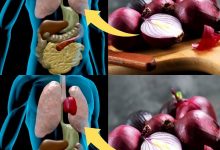1. Blueberries

There is not a single nutritionist who can argue with the power of blueberries. There are at least 15 different types of phytonutrients found in blueberries and all of them are potent antioxidants that protect virtually every system in the body.
Besides, blueberries provide healthy, fiber-rich carbs,” which aid with digestion and weight management. They are also loaded with a ton of vitamins and minerals, including iron, magnesium, zinc, calcium, potassium, and vitamins A, C, and K.
2. Kale

Kale is one leafy green that remains widely beloved by nutritionists. It is great for the heart by lowering cholesterol. It promotes liver and digestive health, and it is a great detox food.”
3. Avocados

Dietitians of all backgrounds are quick to list heart-healthy avocado as one of the world’s healthiest foods. They are literally the perfect food. Avocados are rich in vitamins K, C, B5, and B6, as well as key minerals.
You can work avocados into your diet in so many different ways. Examples such as Slather on toast or mash up a quick batch of guacamole, smoothies, salsa, and ice cream…etc.
4. Beans

Nutritionists agree that beans are “a powerhouse of nutrition. They are an excellent source of plant-based protein, high in fiber, and can help with lowering cholesterol levels, blood sugar management, as well as weight management. Beans are also great for keeping your digestive tract running smoothly.
However, canned beans tend to be high in sodium, so opt to cook your own dried beans at home, choose salt-free varieties of canned beans, or drain and rinse canned beans under running water to significantly reduce the sodium content.
5. Garlic

Garlic is truly one of nature’s superfoods. It contains allicin, a phytochemical that has many medicinal properties. Garlic is great for fighting off viruses, bad bacteria, and fungi. In fact, it has been proven to decrease the length of the common cold.
Garlic is also shown to help reduce cholesterol and blood pressure.1 Plus, it contains high levels of vitamins and minerals without adding a ton of calories.
The best way to consume garlic is when it’s fresh, crushed, and not overcooked. This is because allicin is less impactful when cooked for more than 10 minutes.
6. Lemon

This food contains a long list of super-important vitamins and minerals, many of which contribute to the health of our digestive and immune systems and can do quite a number to the health of our hair and skin. Vitamin C in lemons helps produce collagen and protects the skin from free radicals, which could lead to cancer.
You can also use lemon juice on salads to replace calorie and preservative-packed dressings.
7. Chia Seeds

This small edible seed has been added to the superfood list, and there are many ways it is super. Chia seeds are loaded with omega-3s and antioxidants, which both help promote optimum health. With 40% of chia seeds being fiber, they are one of the best fiber sources out there and help you feel full while maintaining your digestive health. Additionally, they can be very valuable to bone health, as they are high in both calcium and magnesium.
Try sprinkling chia seeds on your cereal, blending them into a smoothie, or adding them into a stir-fry. Just note that you should never consume chia seeds dry as they will expand and can potentially cause blockages and choking;2 instead add liquid to them first before consuming them.
8. Sprouts

With 10 to 14 times the nutrition of the full-grown vegetable, sprouts are loaded with sulforaphane, a biochemical nutrient that increases anti-cancer enzymes in the body.
You can grow them yourself so you always have them on hand for salads and wraps. They are super-easy to grow, require very little space, and no sunlight.
9. Quinoa

Quinoa as an amazing plant-based protein. This means that quinoa contains the perfect proportion of all nine essential amino acids needed for optimum nutrition.
In addition, quinoa contains important nutrients like magnesium, fiber, manganese, riboflavin, and B vitamins, “which help the body convert food into energy,” Bouvier says. Nutritionists recommend replacing rice with quinoa when cooking.
10. Wild Salmon

The last food that all nutritionists love is wild-caught salmon (not to be confused with farm-raised). Wild salmon is rich in omega-3 fatty acids and much lower in the toxins like PCBs than farmed salmon. Omega-3s are important, as they reduce the risk of heart disease and help boost good cholesterol.







